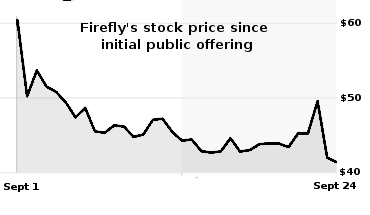SpaceX official confirms it is considering an IPO
In a message to employees on December 12, 2025, SpaceX’s chief financial officer, Bret Johnson, confirmed the company is considering issuing an initial public offering of stock sometime in 2026, but that nothing has been decided in any way.
His announcement also indicated the reason to do so would be to raise enough funds to “ramp Starship to an insane flight rate, deploy AI data centers in space, build Moonbase Alpha and send uncrewed and crewed missions to Mars.”
I think the question is whether the company is raising enough revenue from Starlink to do what it wants, or whether it now sees a need for more investment capital that it cannot get from either that revenue or private stock sales. If it finds in the coming months the former is sufficient, the stock sale will be put off, probably for several years. If it finds the latter, than we shall see this IPO sometime in 2026.
In a message to employees on December 12, 2025, SpaceX’s chief financial officer, Bret Johnson, confirmed the company is considering issuing an initial public offering of stock sometime in 2026, but that nothing has been decided in any way.
His announcement also indicated the reason to do so would be to raise enough funds to “ramp Starship to an insane flight rate, deploy AI data centers in space, build Moonbase Alpha and send uncrewed and crewed missions to Mars.”
I think the question is whether the company is raising enough revenue from Starlink to do what it wants, or whether it now sees a need for more investment capital that it cannot get from either that revenue or private stock sales. If it finds in the coming months the former is sufficient, the stock sale will be put off, probably for several years. If it finds the latter, than we shall see this IPO sometime in 2026.

